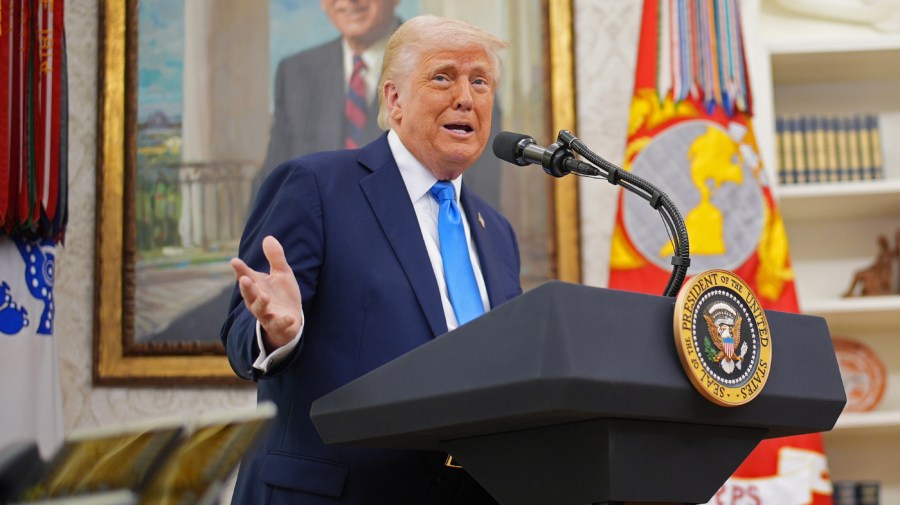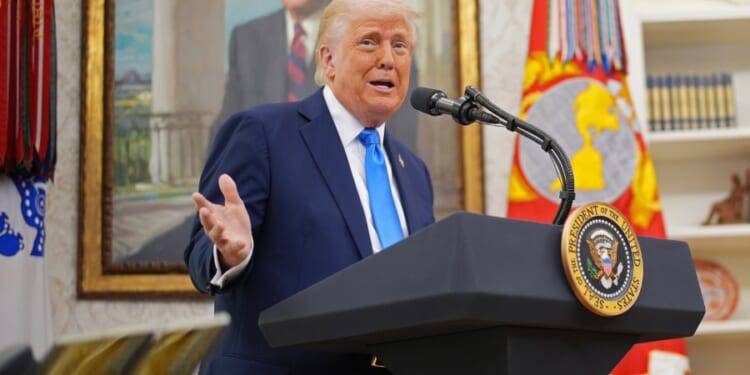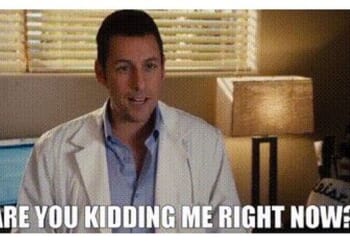
Modern liberalism is losing its hold in geopolitical affairs. Britain and Brussels are feeling the effects.
A new refrain has emerged in the geopolitics of global affairs. Numerous articles bear witness to its reality, which is that of a “changing world order.” What has been overlooked is that it is already upon us and is strengthening into a critical mass.
We are witnessing something historic — a profoundly different way to engage in international affairs. The decline of unipolarity, long predicted, has begun.
U.S. leaders, since the advent of the post-Cold War era, have been strong advocates (along with Britain and Brussels) for liberal globalism. Under President Trump, however, realpolitik has reemerged, driven by transactional pragmatism rather than ideology. Thus, the new leadership has ceased trying to delay the inevitable shift towards a multipolar world.
This pivot is a full structural break with the past. In weeks, the U.S. has gone from resisting the idea of a multipolar order to an attempt to dominate it on new terms. Less moralism, more realism; less ideology, more pragmatism.
Trump’s pivot has broad and lasting implications. The world’s most powerful actor seems to have abandoned the guardianship of liberal globalism and embraced pragmatic engagement through great power interests. The language of human rights and “democracy promotion” has been replaced with “America First,” not just domestically, but in foreign policy as well. U.S. foreign policy is now about interests, not ideologies. Trump’s interest in Canada and Greenland, for example, is about protecting America by securing its strategic interests in the Arctic.
Multipolarity is no longer hypothetical. Trump has reoriented the U.S. from a defender of the idea of unipolarity to a player seeking advantage in a multipolar world. His doctrine of “great power interests” aligns more with the realist tradition than with the post-Cold War liberal globalism that has dominated Washington for decades. The era of liberal internationalism is over. Trump has defunded USAID, slashed “democracy promotion” budgets and shown a willingness to work with regimes of all types, so long as it serves American interests.
This is a departure from the binary moral frameworks of the past. Under Trump, the White House no longer seeks to export liberalism, but to negotiate power in the pursuit of strategic interests. The U.S. now prioritizes national interests over globalist commitments.
What remains is a fractured West, split between nationalist-led governments like Trump’s (Orban in Hungary, Fico in Slovakia, Vucic in Serbia, Georgescu in Romania) and the liberal globalist bastions in Britain, Brussels, Paris and Berlin. The internal clash between these two visions, nationalism versus globalism, is now the defining political struggle in the West.
As the West fractures, the “majority world,” an informal coalition of nations outside the Western bloc, grows stronger, more confident. Although not a formal alliance, it has a shared political perspective: sovereignty over submission, trade over ideology, multipolarity over hegemony. BRICS, the Shanghai Cooperation Organization, and other regional formats are maturing into genuine alternatives to Western-led institutions.
The Global South is no longer at the periphery, it’s a stage upon which multipolarity will play out.
We are witnessing the formation of a new “Big Three” — the U.S., China, and Russia. India will join them as it continues to develop its own (non-Western but not anti-Western) economic and military independence. These are not ideological allies, but civilizational powers, each pursuing its own destiny, its own interests.
Their relations are transactional, not ideological. China has managed a delicate balance during the Ukraine war, maintaining a strategic partnership with Moscow while safeguarding access to Western markets.
This is not a betrayal of values. It’s sound diplomacy, intended to preclude conflict — or worse, nuclear holocaust.
In a multipolar world, every player understands the interests of others. China, Russia and India respect that. It seems the U.S. under Trump’s leadership gets that as well. Britain and Europe, on the other hand, remain ensconced in a Cold War mentality.
Europe’s short-sightedness is predicated upon the European Union’s need for an enemy. Russia is its convenient scapegoat to hold its union together, against the reality of a nonexistent threat from a country that has neither the interest nor the capability of prevailing in a conflict against them or against NATO.
Russia, meanwhile, has emerged from the last two years more self-reliant and self-confident. The war in Ukraine and the resilience of Russia’s economy, society and military have altered global perceptions of it. It is no longer just a declining superpower in geopolitical affairs. This shift is visible not only in international diplomacy, but in global logistics, including new Eurasian trade corridors, expanded BRICS cooperation, increasing use of national currencies in trade and the potential for significant economic commerce with and investment from America’s private sector.
The U.S., for its part, may have pivoted to realism, but it remains a competitor regarding its strategic interests.
If Russia is to remain a player in a multipolar world, it must continue its efforts toward a closer relationship with the U.S., built on economic and political cooperation, not intransigence. It will need to deepen ties with Asia and the Global South and pursue a foreign policy anchored in pragmatism, not nostalgia for what once was.
Moscow’s relations with Britain and Western European countries are becoming increasingly strained, especially against the backdrop of its current dialogue with Washington.
Multipolarity is already here. We have moved beyond theory. Now it’s about relative position within that order. The world has become multipolar not because anyone willed it, but because power dynamics required it. The center of gravity shifted. Trump merely accelerated the process.
The U.S., China, Russia and India need not attempt to demonstrate what is already a fait accompli. The old order is slipping into irrelevance. The objective now is to claim one’s place in the new multipolar world.
F. Andrew Wolf Jr. is the director of The Fulcrum Institute, an organization of current and former scholars in the humanities, arts and sciences.











